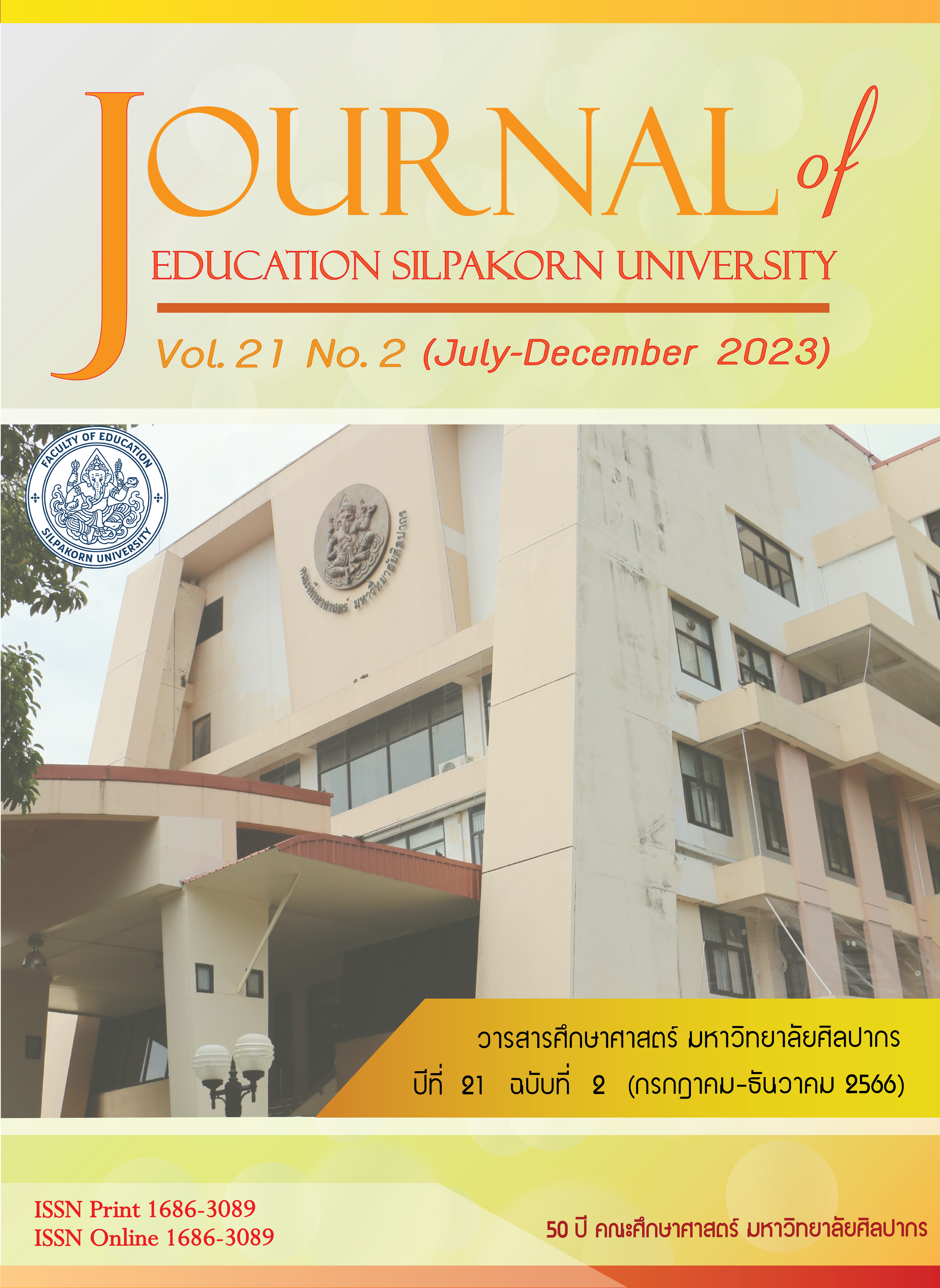Enhancing happiness in life with the concept of Self-compassion
Main Article Content
Abstract
Abstract
Self–compassion is a psychological concept that helps people understand themselves without self–blame and suffer from the mistakes arising from their own actions. See that this mistakes that have occurred are things that have happened in the past and are not important problems that cause people to feel negative about themselves until they are unable to do anything further. But instead made me see that mistakes from any kind of work are common and can happen to anyone. Self-compassion is an essential quality for a happy life. Because We will be aware of life as if really is. A number of studies have been found to support the view that self-compassion is essential to our lives. The element of self- compassion consists of three parts : Self-kindness, Common humanity and Mindfulness. While the approach to enhancing happiness in life with the concept of Self-compassion ,there are 5 improtant approaches as follows : practice facing the truth , Ignore negative thoughts about yourself , Change your perspective when your heart is troubled, Control your emotions not to sink , and Facing the fight without avoiding the problem.
Article Details

This work is licensed under a Creative Commons Attribution-NonCommercial-NoDerivatives 4.0 International License.
References
References
Bergsma, A, & Ardelt, M. (2012). “Self-Reported Wisdom and Happiness: An Empirical Investigation”. Journal of Happiness studies. 13(3): 481-499.
Costa, J., & Pinto-Gouveia, J. (2011). “Acceptance of pain, self-compassion and psychopathology: Using the chronic pain acceptance questionnaire to identify patients’ subgroups”. Clinical Psychology and Psychotherapy. 18, 292-302.
Griffiths, L.J., & Griffiths, C.A. (2013). “Unconditional Positive Self-Regard (UPSR) and Self-Compassion, the Internal Consistency and Convergent/Divergent Validity of Patterson & Joseph’s UPSR Scale”. Open Journal of Medical Psychology. 2(4): 168-174.
Gilbert, P. (2009). The Compassionate Mind: A New Approach to Life’s Challenges. Oakland Canada : New York, NY : Routledge.
Homan, K.J., & Sirois, F.M. (2017). “Self-compassion and physical health: Exploring the roles of perceived stress and health-promoting behavior”s. Health Psychology Open. 4(2): 1-9. Retrieved February 22, 2020, from https://doi.org/10.1177/2055102917729542
Kristin Neff, D. (2003). “Self-compassion: An alternative conceptualization of a healthy attitude toward oneself”. Self and Identity. 2(2): 223-250.
Kohle, N. (2017). “User-experiences with a web-based self-help intervention for partners of cancer patients based on acceptance and commitment therapy and self-compassion: a qualitative study”. BMC public health. 17, 1-16.
Parinda Tasee. (2017). The Study and Enhancement of Social Work Student’s Self-Compassion through Group Counseling. Thesis. Doctor of Philosophy Degree in Research and Development on Human Potential. Srinakharinwirot University.
Pattarapong Thammarongpreechachai. (2021). “Wisdom of Happiness through Self-Compassion”. Journal of Liberal Arts. Maejo University, Vol.9(2), July-December.
Rabon, Sirois and Hirsch. (2018). “Self-compassion and suicidal behavior in college students: Serial indirect effects via depression and wellness behaviors”. Journal of American College Health. 66(2): 114-122.
Reyes.D. (2011). Self-Compassion: A Concept Analysis. Journal Holist Nurse published Retrieved October 1, 2012.
Shapira, L.B., & Mongrain, M. (2010). “The benefits of self-compassion and optimism exercises for individuals vulnerable to depression”. The journal of Positive Psychology. 5, 377-342.
Watcharawadee Boonsrangsom. (2013). The relationship between perceived stress and happiness of university students with self-compassion as a mediator. Bangkok: Chulalongkorn University.


